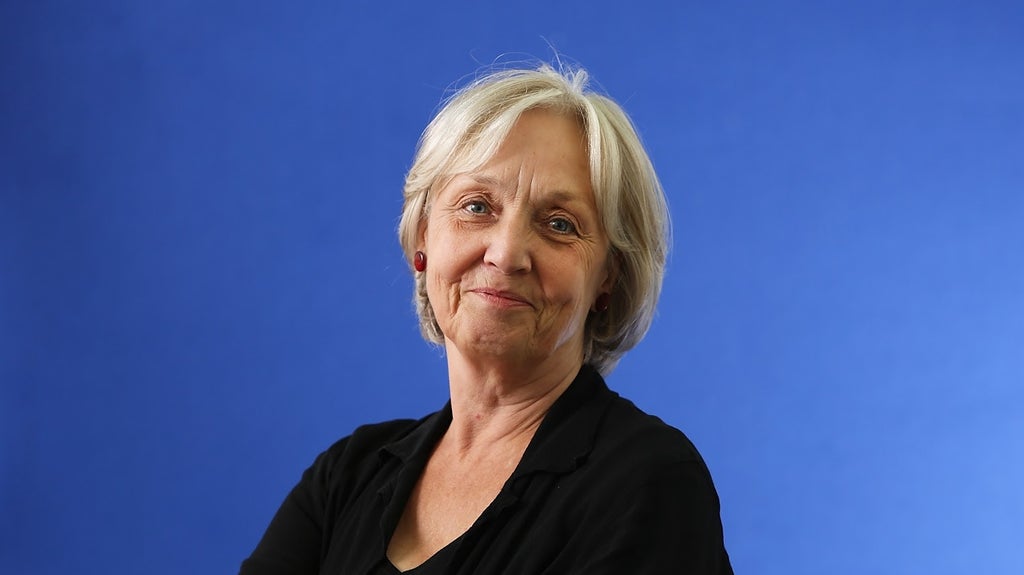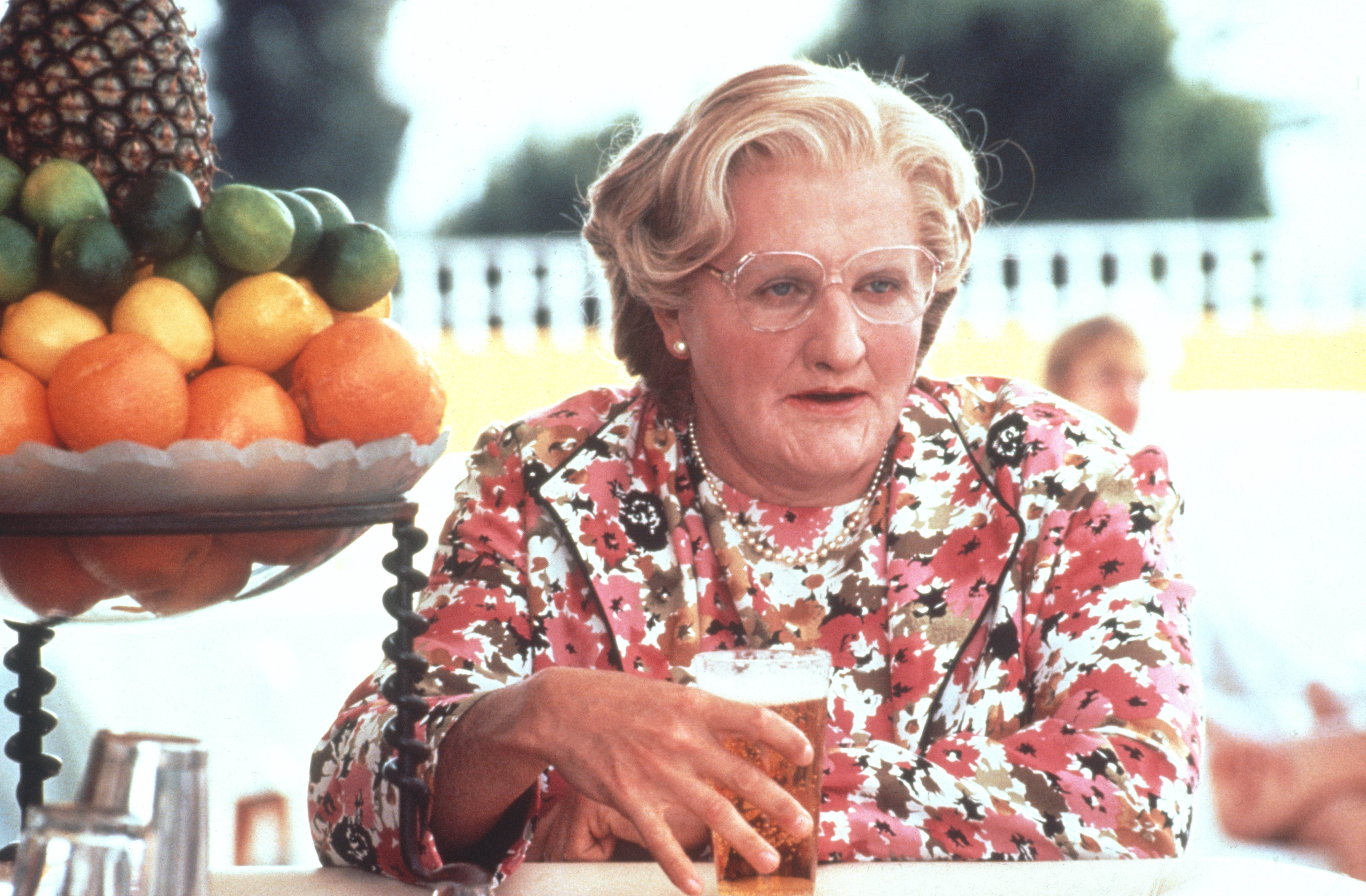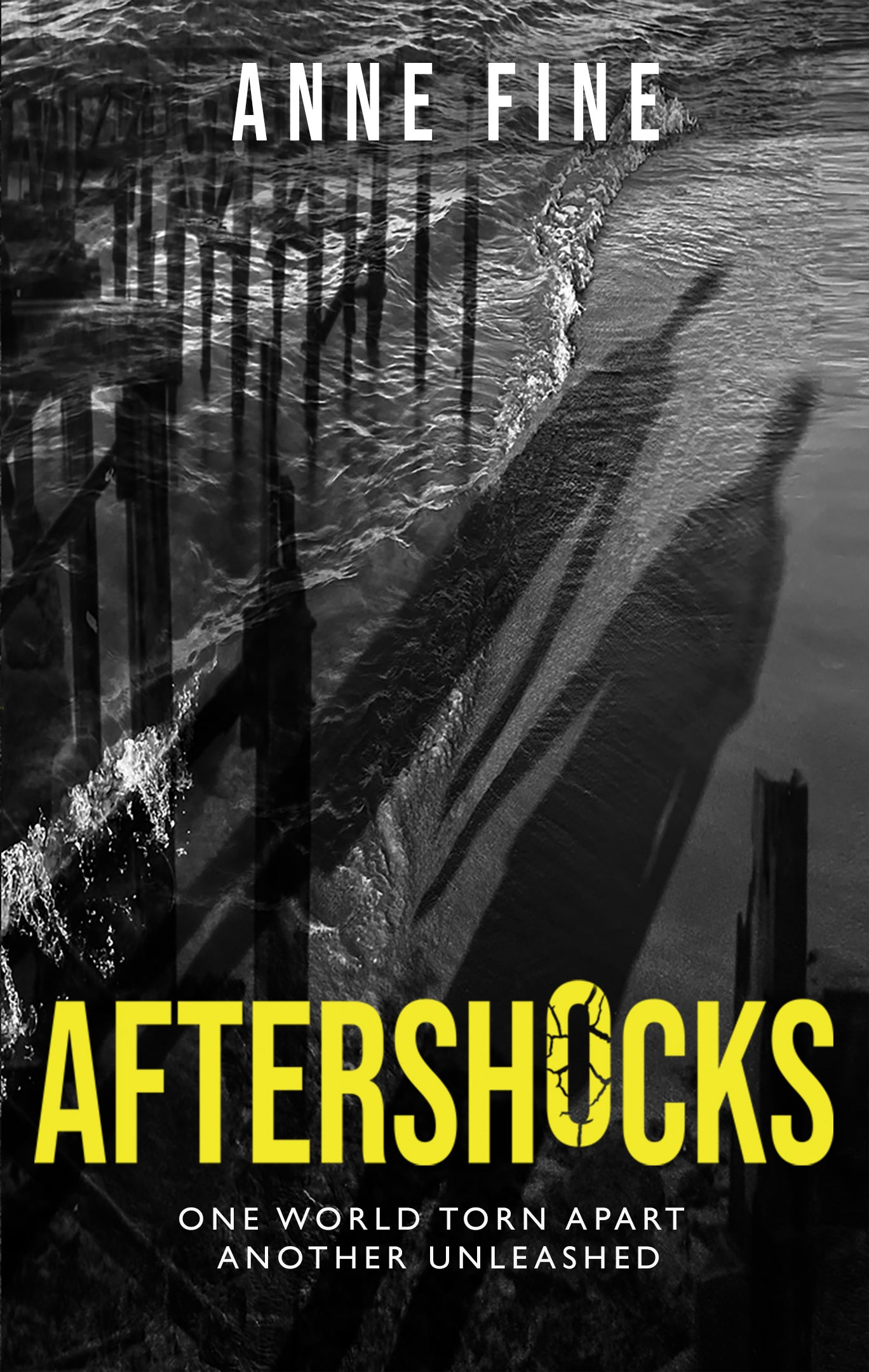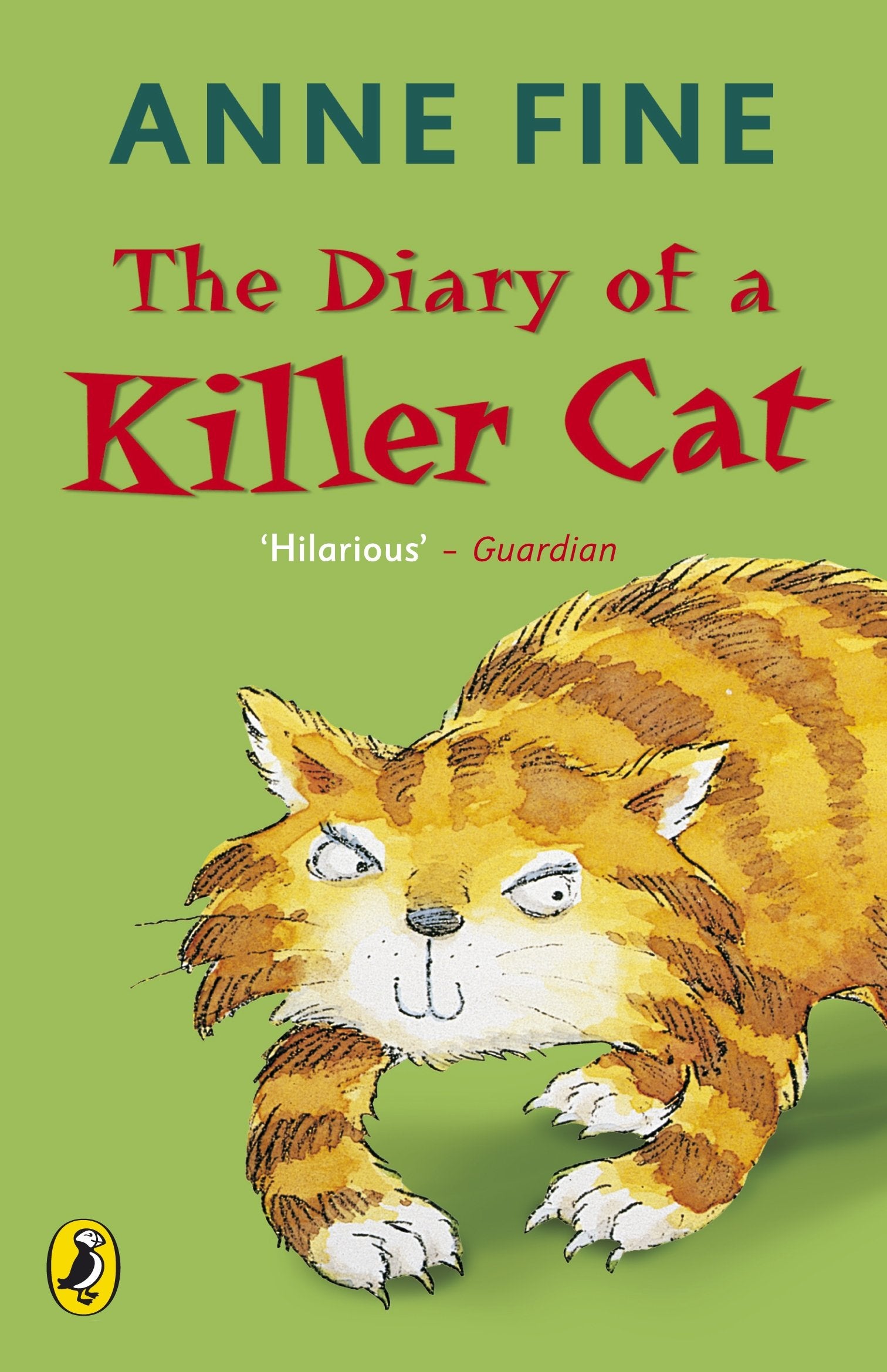
Anne Fine isn’t a fan of Mrs Doubtfire. The former Children’s Laureate may have written the book, Madame Doubtfire, on which the beloved family comedy was based, but she had nothing to do with the 1993 big-screen adaptation that she once described as a “pantomime”. For one thing, she had wanted Warren Beatty to play the role of hapless dad Daniel, who disguises himself as an elderly female nanny after losing custody of his three kids, not Robin Williams.
“I was quite astonished that so many people loved the film, and so many children loved it,” says Fine now. “I found it a bit sentimental at the end. And it’s very different to the book – except they used quite a few of my jokes.” But the 74-year-old was, she admits, “impressed with Robin Williams’s comedy skills” in the end. Who couldn’t be? Think of the pool scene where he lobs a well-aimed lime at the head of his estranged wife’s new boyfriend Pierce Brosnan, then claims it was a “run-by fruiting”. Or when he shoves his face in a cream cake to hide his identity from the social worker.
Other scenes haven’t aged so well. When son Kevin walks in on “Mrs Doubtfire” peeing standing up, he demands that they call the police. Mrs Doubtfire, he stammers to his sister Lydia, is “a she-he”. Is it transphobia?
“The issue of gender has become infinitely more complicated and touchy since the book was written,” says Fine, carefully. “[It] was nowhere near such a sensitive one when the book was published. Most concerns back then were to do with women’s roles in life, rather than anything else. Daniel applies for the job as a woman because Miranda would never have let him do the job himself… and also men didn’t tend to take nanny or cleaning jobs back then in the way they do now.”
Fine never met Williams, who took his own life in 2014 before a planned Mrs Doubtfire sequel. She turned down an opportunity to join him on Michael Parkinson’s chat show to promote the film, because she had more important things to do. “I had been booked for several months to talk to 200 librarians. And librarians are a novelist’s bread and butter. I wasn’t going to dump them at the last minute. So, I said I couldn’t do it. I mean, I would have been terrified.”
As she watched the interview on TV, she only felt relief. “He was wired… He was so clever. And I thought if I had gone on it, I would have been sitting at the other end of the sofa looking like a stuffed cushion. I mean, really? Just totally embarrassing.”
Fine’s novel was “much, much darker” than the film, she says. In one passage, she describes Daniel’s anger that Miranda has dropped the kids off 40 minutes late: “He reached into the drawer at the end of the table, and drew out an imaginary carving knife with one hand, while drawing the teapot towards him with the other. Still grinning horribly, he slowly and carefully drew the imaginary knife across the tea cosy’s imaginary throat.” “It’s black comedy," says Fine proudly, "and I did miss that [in Mrs Doubtfire].”
My only request was, ‘Please don’t make the children brats.’ I’m not taking any credit here for the success of the film. But I do think it’s one of the reasons why children like the film – because they can relate to those children
She did have one successful intervention, though. “My only request was, ‘Please don’t make the children brats,’” says Fine, who didn’t like the director Chris Columbus’s Home Alone franchise for that reason. When Daniel’s youngest daughter Natalie tells him as he leaves the marital home: “You can’t go now – we’re in the middle of Charlotte’s Web,” it is certainly in stark contrast to Home Alone’s Kevin yelling: “Guys, I’m eating junk and watching rubbish! You better come out and stop me!” And while the Doubtfire kids support and love each other, Kevin’s siblings ridicule him. “I’m not taking any credit here for the success of the film," says Fine. "But I do think it’s one of the reasons why children like the film – because they can relate to those children.”
That’s the secret of Fine’s children’s books: they unravel the complex adult world for kids. She’s written over 70 across all age groups, dealing with divorce, stepfamilies, politics, parenting, and drug addiction, and now, the “horribly difficult subject” of grief in the compelling Aftershocks.

Fine, who has greyish short hair and an irrepressibly cheerful personality, is talking from her home office in Barnard Castle – a market town in the north-east of England, a famous haunt of Dominic Cummings during lockdown. She lives with her partner of 30 years, Richard, a botanist who specialises in orchids, and has two adult children, Ione and Cordelia.
She was brought up in the Midlands and moved to California before returning to Edinburgh, where the idea for Mrs Doubtfire first emerged, after she observed a divorced neighbour waiting for his children, who never turned up. “It made me think how awful that must be.”
Fine – who was named the second Children’s Laureate in 2001 and was awarded an OBE in 2003 – does acknowledge the benefits of the film: Mrs Doubtfire paid off her mortgage. But it was already about her 15th novel and it had been optioned for six years until Williams greenlit it; she was told Williams was interested in the issue of a child’s easy access to the non-custodial parent because of “personal issues”.

Now, with 30 copies of every book she’s ever written stacked on long, white shelves behind her, she’s keen not to put Madame Doubtfire on a pedestal. Bestsellers include the Carnegie Prize-winning novel Flour Babies (1992), about a group of kids given a sack of flour to care for like a baby, and 1989’s Goggle-Eyes, which was adapted for the BBC in 1993. The show starred Honeysuckle Weeks as teenager Kitty, who doesn’t get on with her mum’s new boyfriend because of his anti-Campaign for Nuclear Disarmament views.
“I was a very active member of CND,” says Fine,“ and I was helping pull the CND fence down [at Greenham Common], and it just disturbed me. I thought, ‘You know, I’m a writer. The pen is mightier than the sword. What am I doing? Why aren’t I using my skills to make children aware of, you know, the nuclear issue?’”
While Bill’s New Frock, about a boy forced to wear a pink dress to school, was intended “to eradicate sexism in primary schools”, the later Killer Cat series about a cat called Tuffy and his family, as told by the murderous cat himself, was just a wickedly funny look inside the mind of a feline. “Okay, Okay. So hang me. I killed the bird. For pity’s sake, I’m a cat.”
Aftershocks – her weightier new book – explores loss and grief both on a “macroscopic and microscopic level”. It follows Louie, who takes a trip with his engineer father to an isolated coastal region, where he is caught up in an earthquake and witnesses a tsunami from a high ridge, a year after losing his brother in a car accident.
It’s fast-paced and vivid. By page 43, he sees “a massive, gathered bank of water now hurtling towards the shore. Unstoppable… I saw it creeping places it had never reached before… thundering up to the huts in which the fishermen kept their nets and tackle, devouring them in an instant.”

Fine had been asked many times to tackle the topic of grief and loss in a book for children, but had never felt ready. After the death of a close friend, she was spurred into action, but she still needed to “distance herself” when writing about it. “To be honest, the death of a child or the death of somebody close is so much my worst fear… And so, I never even went near it.”
Instead, Louie’s brother’s death comes in flashbacks, or memories, which was far more manageable for Fine to write about and more palatable for children to read. It’s not until Louie returns to the devastated region, to help the villagers grieve their lost ones, that he and his estranged parents open up about their own grief – together. But despite exploring grief from a boy’s perspective, she doesn’t feel she’s tackling toxic masculinity.
“I’ve been talking to readers, obviously, for a long, long time. And in my experience, there is almost no difference in the emotional breadth and depth of boys or girls,” she says. “I have quite often just changed the gender of the character a third of the way through the book, and I’ve never had to go back and do much more than a bit of cosmetic stuff. Boys are just as feeling as girls, although often they are less inclined to show it… Perhaps for social reasons, lots of reasons. But it’s there. And the thing about books is that they’re entirely private. So, from the minute that you open a book, nobody knows what is going on in your brain. Nobody knows who you are identifying with.”
‘Aftershocks’ is published by Old Barn Books on 10 Feb






